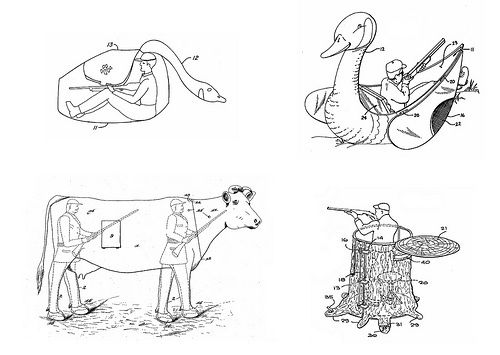
A puzzle from Russia:
Draw two straight lines on the clock face so that the sums of the numbers in each part are equal.

A puzzle from Russia:
Draw two straight lines on the clock face so that the sums of the numbers in each part are equal.
There are four occasions on which remarkable masses of ice, of many hundred pounds in weight, are believed to have fallen in India. One near Seringapatam, in the end of last century, said to have been the size of an elephant. It took three days to melt. We have no further particulars, but there is no reason whatever for our doubting the fact.
— George Buist, “Remarkable Hailstorms in India, From March 1851 to May 1855,” in Report of the Twenty-Fifth Meeting of the British Association for the Advancement of Science, 1856
Welsh cyclists were confused in 2006 to discover a temporary sign at the Barons Court roundabout between Penarth and Cardiff:
CYCLISTS
DISMOUNT
LLID Y BLEDREN
DYMCHWELYD
The first part is fine … but llid y bledren is Welsh for “inflammation of the bladder.”
“Road signs are mistranslated on an enormously regular basis, usually because people use online translators,” Aran Jones of the Welsh language group Cymuned told the South Wales Echo. But even using a human translator doesn’t guarantee a good result. In Swansea, a sign posted in October 2008 read:
NO ENTRY FOR HEAVY GOODS VEHICLES. RESIDENTIAL SITE ONLY.
NID WYF YN Y SWYDDFA AR HYN O BRYD. ANFONWCH UNRHYW WAITH I’W GYFIETHU.
The latter phrase means “I am not in the office at the moment. Send any work to be translated.”
(Thanks, Tom.)

Hunting blinds, 1897-1991. Are these the ingredients of the perfect crime? You could dress up as a cow and shoot your rich Uncle Oswald, then stand there and chew your cud as the police searched for clues.
Perhaps someone’s already done this.
Down in the silent hallway
Scampers the dog about,
And whines, and barks, and scratches,
In order to get out.
Once in the glittering starlight,
He straightway doth begin
To set up a doleful howling
In order to get in.
— R.K. Munkittrick, in A Book of American Humorous Verse, ed. Carolyn Wells, 1917
In 1938, a group of freshmen at the University of Michigan circulated a petition asking that a psychology lecture be rescheduled to avoid a conflict with a football game. The upperclassmen who signed it read the full text in the undergraduate newspaper the following day:
We, the undersigned, hereby petition that the lecture in Psychology 2 be changed from Saturday to Wednesday afternoon. By signing this document without reading it we cheerfully disqualify ourselves as candidates for any degree conferred by this university. We furthermore declare that the freshmen are our superiors in wit and wisdom, and that our stupidity is surpassed only by the mental lethargy of the underpaid faculty that teaches us.
I can’t find a report of the fallout, but there sure must have been some. “Carelessness,” wrote Benjamin Franklin, “does more harm than a want of knowledge.”

In English, the name of each integer shares a letter with each of its neighbors. ONE shares an O with TWO, TWO shares a T with THREE … and so on to infinity.
coenaculous
adj. loving supper
Crouching in a Flanders trench in November 1917, 21-year-old Walter Butler addressed a field service card to his fiancee Amy to let her know he was safe.
She never received it. After the war Butler returned to England and the pair married, moved to London, and had a daughter. Eventually they divorced; Amy returned to her family home while Walter remarried and led a career as a builder. She died in 1974 at age 81, he four years later at 82.
In February 2007, the card arrived. Their daughter, now an 86-year-old grandmother, received it.
“I am quite well,” it said. “Letter follows at first opportunity. I have received no letter from you for a long time.”

The South African flower Mesembryanthemum draws its name from the Greek roots for middle, embryo, and flower.
It’s believed to be the English word containing the highest “score” in Roman numerals — four Ms.